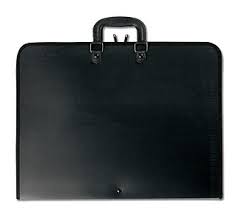Portfolios: A Novel Way to Assess Selling Competencies
 This blog is intended as a companion to the previous one, One Size Does Not Fit All, where we make the case for sales education designed to fit different skill levels. It is prompted by a common challenge we face in corporate training: requiring everyone, from seasoned veterans to rookies, to participate in the same training. As step one in the solution, we propose an Exemplary Performer analysis to identify graduated skills and methods that distinguish top performers from more typical ones. The outcome, as noted in the previous blog, is the determination of different course offerings, a curriculum if you will, designed to teach competencies required to succeed in a unique sales process. This can lead to a certification program.
This blog is intended as a companion to the previous one, One Size Does Not Fit All, where we make the case for sales education designed to fit different skill levels. It is prompted by a common challenge we face in corporate training: requiring everyone, from seasoned veterans to rookies, to participate in the same training. As step one in the solution, we propose an Exemplary Performer analysis to identify graduated skills and methods that distinguish top performers from more typical ones. The outcome, as noted in the previous blog, is the determination of different course offerings, a curriculum if you will, designed to teach competencies required to succeed in a unique sales process. This can lead to a certification program.
Step two, outlined in this blog, deals with a means of assessing those proficiencies. This process would allow salespeople to engage in training and coaching that fits them rather than holding experienced salespeople prisoner in a course focusing on introductory content. This approach, common as it is, is analogous to requiring advanced students to take entry level courses.
But, we do not suggest traditional tests for this evaluation. Rather, we propose a Portfolio Assessment. Derived from visual and performing arts, portfolios have been used increasingly in a wide variety of settings to evaluate skills and abilities. The essence to a portfolio assessment is that each salesperson would need to provide authentic evidence that they have mastered key selling skills.
Traditional testing with right and wrong answers and percentile ranks would provide only proxy evidence that the salesperson has the abilities to succeed. Alternatively, the portfolio approach would require tangible proof. Traditional paper and pencil tests go no further than knowing what to do. Portfolios require both knowinganddoing.
Many test takers perceive traditional tests as something being done to them. Conversely, portfolio assessments are recognized as a fair means of demonstrating mastery of essential skills. There is no arguing the relevancy or content validity of a well- conceived portfolio assessment.
When portfolios are deficient, a clear training and coaching agenda emerges. Both salespeople and their managers know what needs to be done to bring the content of the portfolio up to standards, perhaps leading to certification. When there are deficiencies, salespeople are not sent off to study for a test. Rather, they work and are coached on the skills that will bring their performance up to the certifiable level.
In summary, a Portfolio approach to assessing sales competencies will:
- Provide authentic evidence of mastery of critical selling abilities in the firm’s unique sales process.
- Provide evidence of both knowing and doing those critical sales competencies.
- Be easy to customize and adopt to meet changing needs.
- Be accepted by the sales team as a fair and appropriate certification assessment.
- Provide a coaching training and teaching agenda for the salesperson and his or her coach.
Please let us know if you would like to learn more about this novel way of assessing sales competencies.

Comments
Portfolios: A Novel Way to Assess Selling Competencies — No Comments
HTML tags allowed in your comment: <a href="" title=""> <abbr title=""> <acronym title=""> <b> <blockquote cite=""> <cite> <code> <del datetime=""> <em> <i> <q cite=""> <s> <strike> <strong>